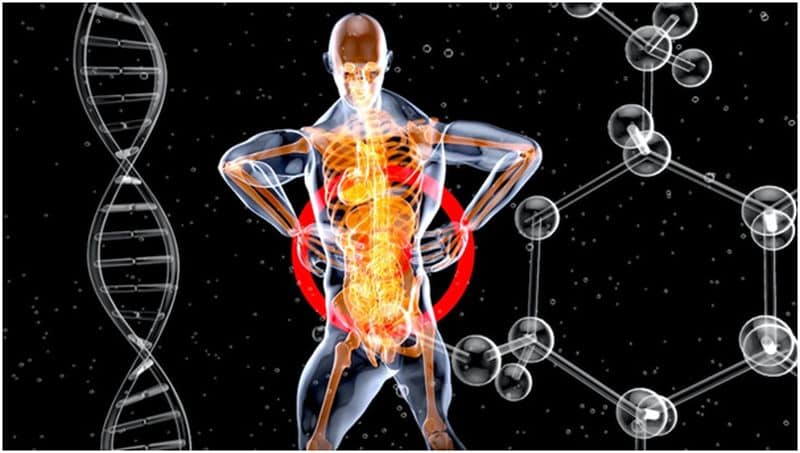The liver is one of the most important organs in the body, as it is responsible for many functions. It filters toxins out of the bloodstream, stores nutrients, and produces bile to help digestion. As important as this organ is, it is susceptible to many illnesses.
Fatty liver disease, also known as non-alcoholic fatty liver disease (NAFLD), is one of the most common liver diseases in adults. It’s important to get a proper diagnosis and understand the full range of symptoms you may experience so you can seek treatment, reduce your risk of complications, and take steps towards healthier living.
A blood test is the best way to determine if you are at risk of any of these illnesses. Luckily, companies such as Fibronostics are there to assist you. On the plus side, it is important to note that fatty liver disease is preventable.
You can do several things to keep your liver healthy, including eating a healthy diet, exercising regularly, and avoiding alcohol. Keep reading to learn more about fatty liver disease and how you can prevent it.
What is Fatty Liver Disease?
Fatty liver disease, also known as non-alcoholic fatty liver disease (NAFLD), is one of the most common liver diseases in adults. It can develop when your body produces excessive amounts of fat in your liver.
The cause of NAFLD isn’t clear yet. It’s believed to be related to a combination of factors such as genetics, environment, and lifestyle choices that affect how much you eat and exercise (such as eating too much food or not getting enough exercise).
It’s important to get a proper diagnosis and understand the full range of symptoms you may experience so you can seek treatment, reduce your risk of complications, and take steps towards healthier living.
Early Symptoms of Fatty Liver Disease
Fatty liver disease is a serious condition that can lead to complications, including death. The symptoms of fatty liver disease vary, and many people don’t experience any symptoms at all. In the early stages of liver disease, experiencing symptoms is uncommon. However, some of the symptoms that you might experience include the following:
- Swelling of the legs and ankles
- Itchy skin
- Dark urine or a pale-colored stool
- Fatigue and weakness
- Nausea
- Loss of appetite
- Abdominal pain and swelling
- Yellowish eyes and skin
Suppose you have been diagnosed with fatty liver disease or are experiencing symptoms consistent with the condition. In that case, it’s important that you seek treatment and take steps towards healthier living as soon as possible.
The severity of your condition will determine how quickly you need to act. For example, if you have mild symptoms (such as occasional fatigue), waiting three months before starting treatment may be beneficial.However, suppose there is an advanced stage where the damage has already been done. In that case, it might already be too late for recovery.
Preventing and Treating Liver Disease
Currently, there isn’t a cure for liver disease. However, there are several steps that you can take to prevent its progression. This can be done in two ways:
1. Healthy Eating:
Maintaining a healthy lifestyle is the best way to keep your liver healthy. Eating a balanced diet, exercising regularly, and avoiding alcohol will all go a long way toward preventing fatty liver disease. In addition, you can do a few other things to ensure that your liver stays healthy. These include:
- Drinking plenty of water is essential for proper liver health. Water helps to flush toxins from the body and keeps your organs functioning at their best.
- Limiting sodium and other processed foods can increase your risk of developing fatty liver disease.
- Eating foods that are rich in antioxidants. These foods, like dark leafy greens, brightly-colored fruits and vegetables, and nuts and seeds, help to reduce inflammation and free radical damage in the body.
- Eating a diverse range of foods can also help ensure that your liver gets all the nutrients needed to stay healthy.
2. Exercising Regularly

Exercising regularly plays a key role in liver health. Exercise helps to reduce inflammation, balance hormones, and keep weight at a healthy level. Regular exercise also helps to reduce stress, which can help to reduce your risk of developing fatty liver disease.
Understand Fatty Liver Disease
Anyone, regardless of age, can develop fatty liver disease, a condition that affects the liver. A healthy and happy life depends heavily on the liver. As such, ensuring that your liver is healthy and completely working is crucial. We have emphasized important information concerning fatty liver disease in this article. It is best to change as soon as possible if you think you may be at risk for liver disease.
Article Submitted By Community Writer




